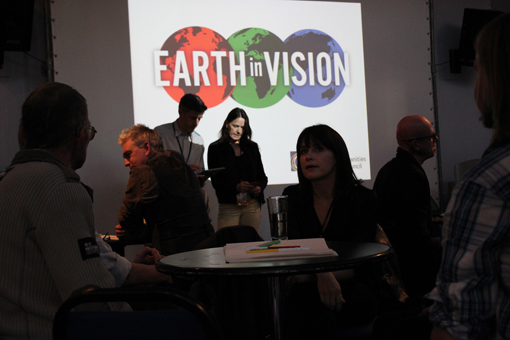Earth in Vision
Earth in Vision critically examines the potential of this sample of programmes as a resource for the making and debating of environmental histories in the context of imagining and planning for environmental futures. The work builds on principles of co-production and social learning, and aims to support more plural and dynamic accounts of environmental change.
Aims
The project has two central aims which can be summarised as a) to write new environmental histories and stories and b) to explore the practices and expectations of potential DBA users or ‘digital citizens’.
To address these aims we set out to explore:
- the achievements and limitations of existing accounts of environmental discourses and mediations over the last fifty years
- the technical, institutional and cultural considerations that emerge as institutions prepare for substantial digital broadcast archive releases
- the practices and expectations of users of digital broadcast archives
- the ideas and responses of people engaged with environment and development issues (including learners, teachers, engaged publics)

Earth in Vision Workshop (iDocs Bristol, March 2014
What have we achieved and learnt so far? Contextualising DBAs
Our research trips to the BBC paper archives in Caversham have been a fruitful start to understanding how scripts and production notes can be used to add contextual history and thus depth to our broadcast archive sample. Such materials can add a compelling layer to the broadcast content, but are subject to copyright and thus clearance for public use is needed and this is a consideration for developers of DBAs. In addition, we plan to interview programme makers/presenters and source other related context, for example to explore production and broadcasting decision making – why a particular angle or theme was taken/promoted or not; why this shot and not that. Such contextualising of DBAs can serve to enhance engagement. In writing new histories of global environmental change with the media ‘written in’, our accounts will illustrate how context and deeper knowledge of the production of past and present environmental understandings support more plural and dynamic environmental accounts and imaginings of environmental futures.
Workshops: What will we do when we get there?
From the start, the project team has been developing tailored workshops to think through who will use DBAs, how they will want to use them and what tools they will need, and how will DBAs will impact upon the way those users engage with and act on environmental change issues.
Our Advisory Board partners include broadcasters, filmmakers, archive and environmental education organisations, and we expect future users to include teachers and learners, film making and media people, IT professionals, academics, museum curators, and NGOs and activists. Samples of all of these stakeholders are participating in the project. The workshops offer a space for participants to think through anticipated digital futures and how these are relevant to them personally or professionally; to play with some of the rights cleared archive content; and to explore and reflect upon their own experiences in terms of how broadcasts have influenced their engagement with or understanding of environmental issues.
 Learning on Screen
Learning on Screen